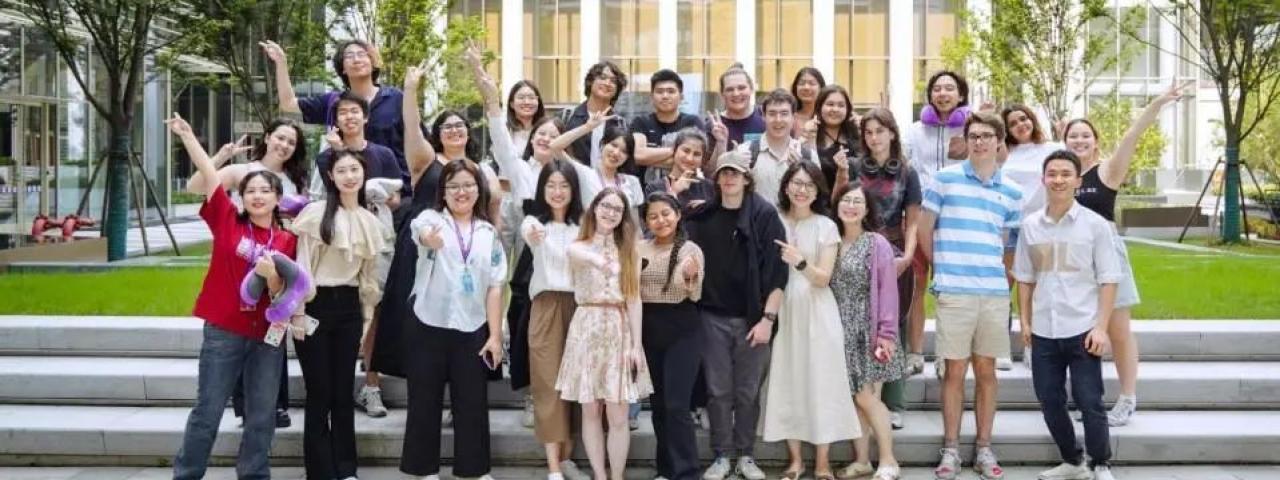
At NYU Shanghai’s annual Summer Chinese Language Immersion Program, 22 students from eight countries took a pledge to speak only Chinese for nine weeks. Though these students from NYU New York and NYU Shanghai were native speakers of English, Spanish, Thai, German, Korean, and Vietnamese, throughout the more than 60 days of classes, they promised to only speak Mandarin together.
This was the fifth year of the Immersion Program, which offers classes for students at the intermediate and advanced levels. Inside and outside of class, students surrounded themselves with Chinese language and Chinese culture, learning about poetry, Chinese cuisines, and tai chi, all while speaking Mandarin. Heading off campus, they joined city walks around Shanghai, including a campus visit to East China Normal University. They visited social enterprises, met with Sichuan high school students, and even went on an overnight trip to Shengsi Island in Zhoushan, Zhejiang Province.
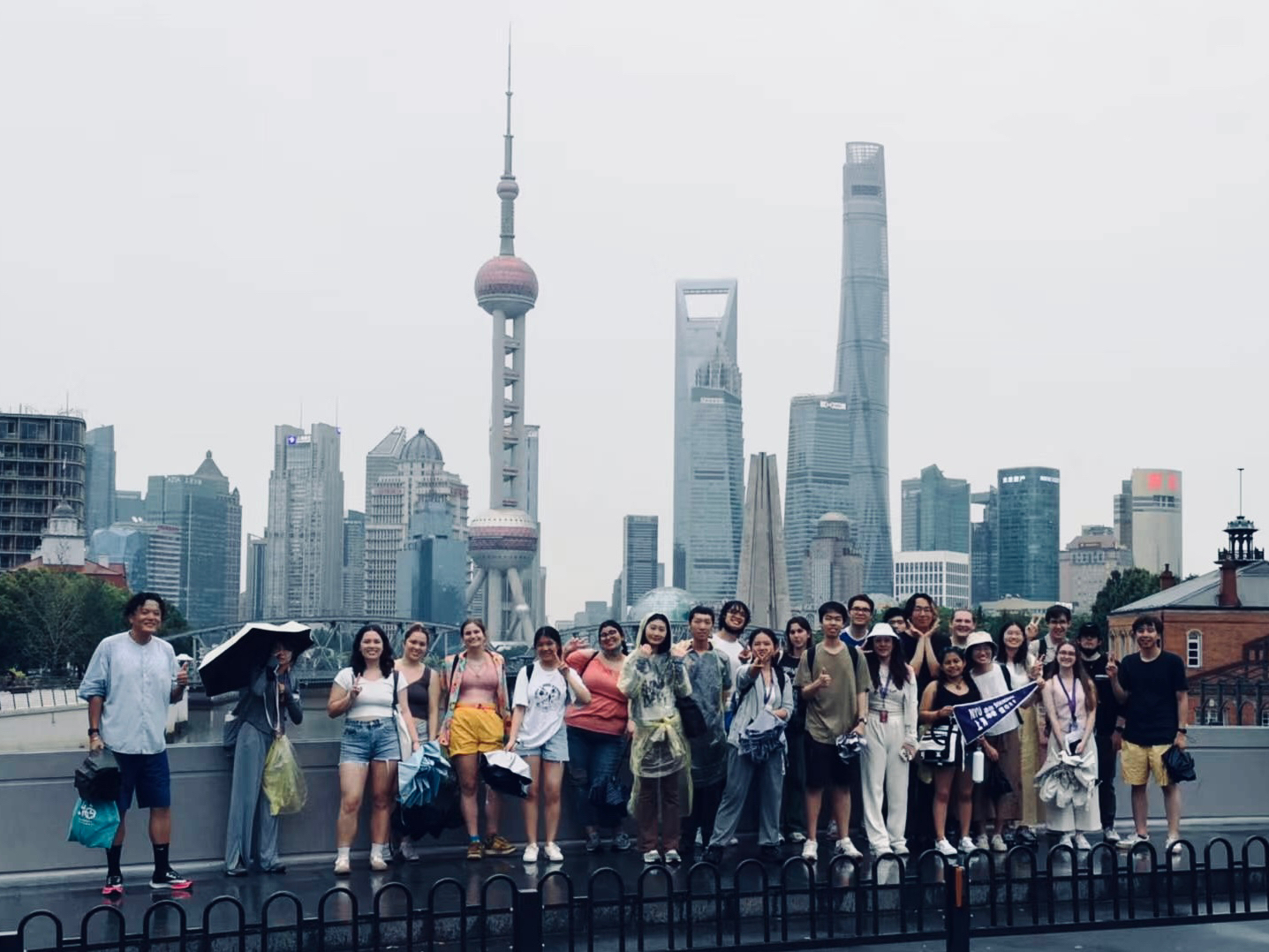
Students on walk throughout Shanghai to learn about the city's history and development.
Immersion learning provides intensive language learning experiences that can help students become more comfortable using language in real-life settings. NYU Shanghai creates a language environment that goes beyond just learning to recognize and write characters - it is elevated into a cultural exchange as students live and learn in Shanghai while improving their language skills.
Three students shared their experiences in the program, their advice to other students, and some of their proudest moments of using Chinese in and outside of the classroom.

Adriana Gimenez Romera ’26
Major: Business and Finance
Hometown: Lorca, Spain
Growing up in Spain, I cultivated a passion for learning languages, namely, Spanish, (my mother tongue) French, and English. Language can bridge a crucial gap, enabling us to get to know other cultures [that are] unique and in many ways different from ours.
The key difference between this program and regular Chinese courses is that the learning goes beyond the classroom and you spend a lot of time talking to peers, roommates, and even friends from outside the program in Chinese. You really have a chance to figure out how conversations in the real world happen, and you start to learn vocabulary that is outside of your textbook but that you regularly use in your daily life.
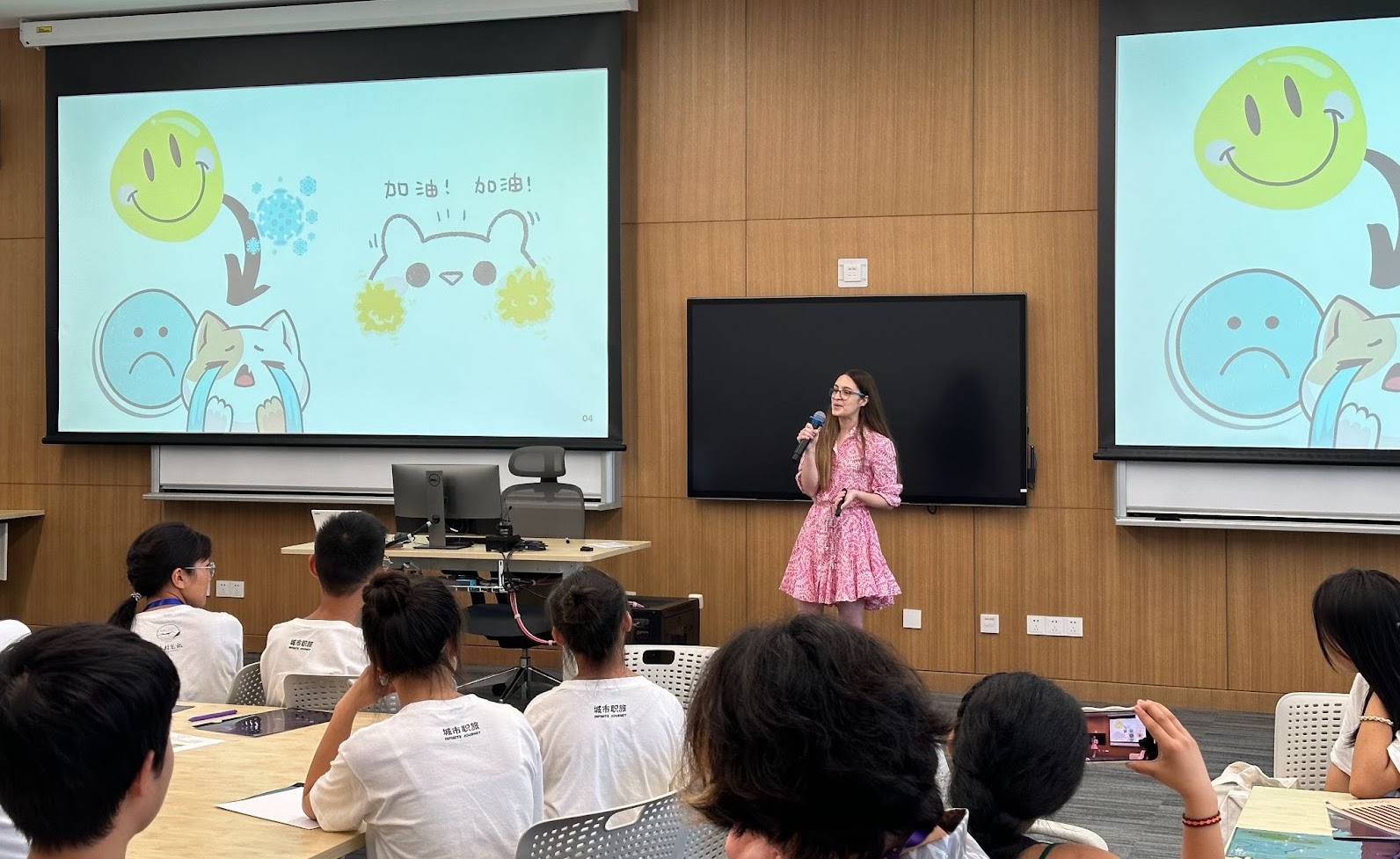
Adriana Romera speaking in Mandarin to students from Sichuan province.
On my first day, I was assigned to a room with roommates whose Chinese [level was] way beyond mine, and I was kind of scared. However, as the days and weeks evolved, I realized that having peers who had more experience than I did with the language…only benefit[ed] me. I think that is a key aspect of learning a language–not being scared of not knowing.
Proudest Moment:
I delivered a six-and-a-half minute speech to 60 native Chinese high schoolers. It was nerve-wracking, to say the least. It was challenging to feel confident in a language that I had just started learning nine months before. After finishing, I remember the Chinese girl sitting next to me turning and saying, “That was great, I understood everything.” I felt really proud of myself for sharing something so close to my heart and being able to do it in Chinese.
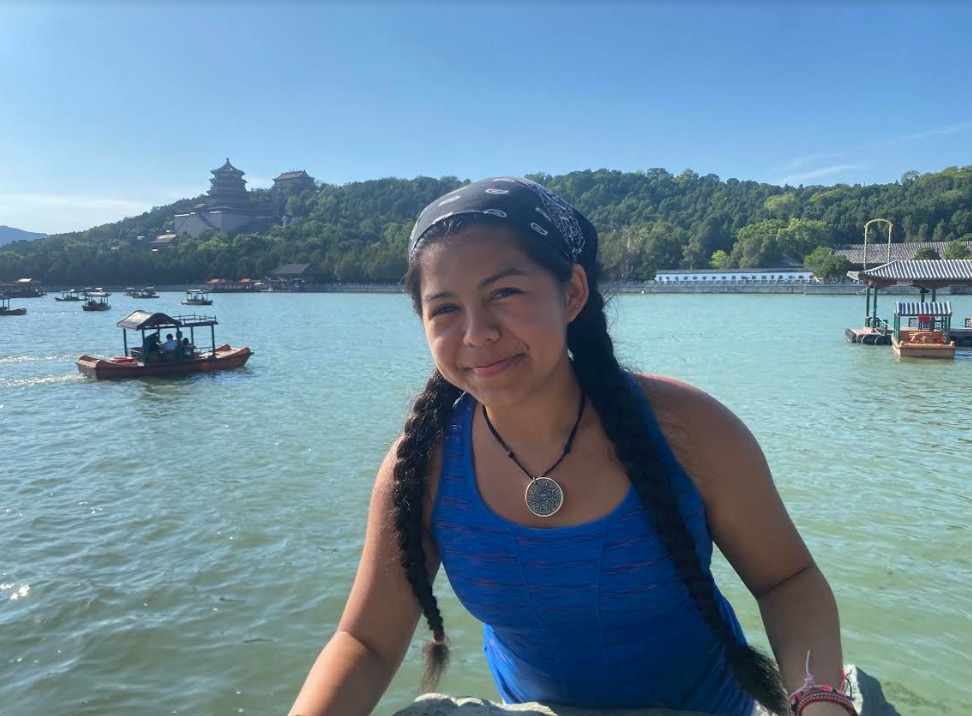
Wendy Benitez Jaramillo NYU ’26
Major: Business and Political Economy
Hometown: Santa Barbara, United States
Coming from a low-income, immigrant household, I value education because I see it as a privilege. Growing up I had hardly any exposure to Chinese culture, language, and traditions. However, I was always attracted to the written characters.
Coming to Shanghai was one of the best decisions I’ve ever made. [At first] I was really struggling. I did not understand my teacher.I did not understand my classmates. I felt like I was holding everyone back. I knew that I could not do anything but put in my best effort, remained resilient, and had a positive attitude. It was hard, especially in the beginning when I had a very hard time with my listening comprehension. I studied all day everyday, went to the TA office hours, and participated in all of the cultural classes. When I found out that I was voted “most improved student”, it was quite emotional for me.
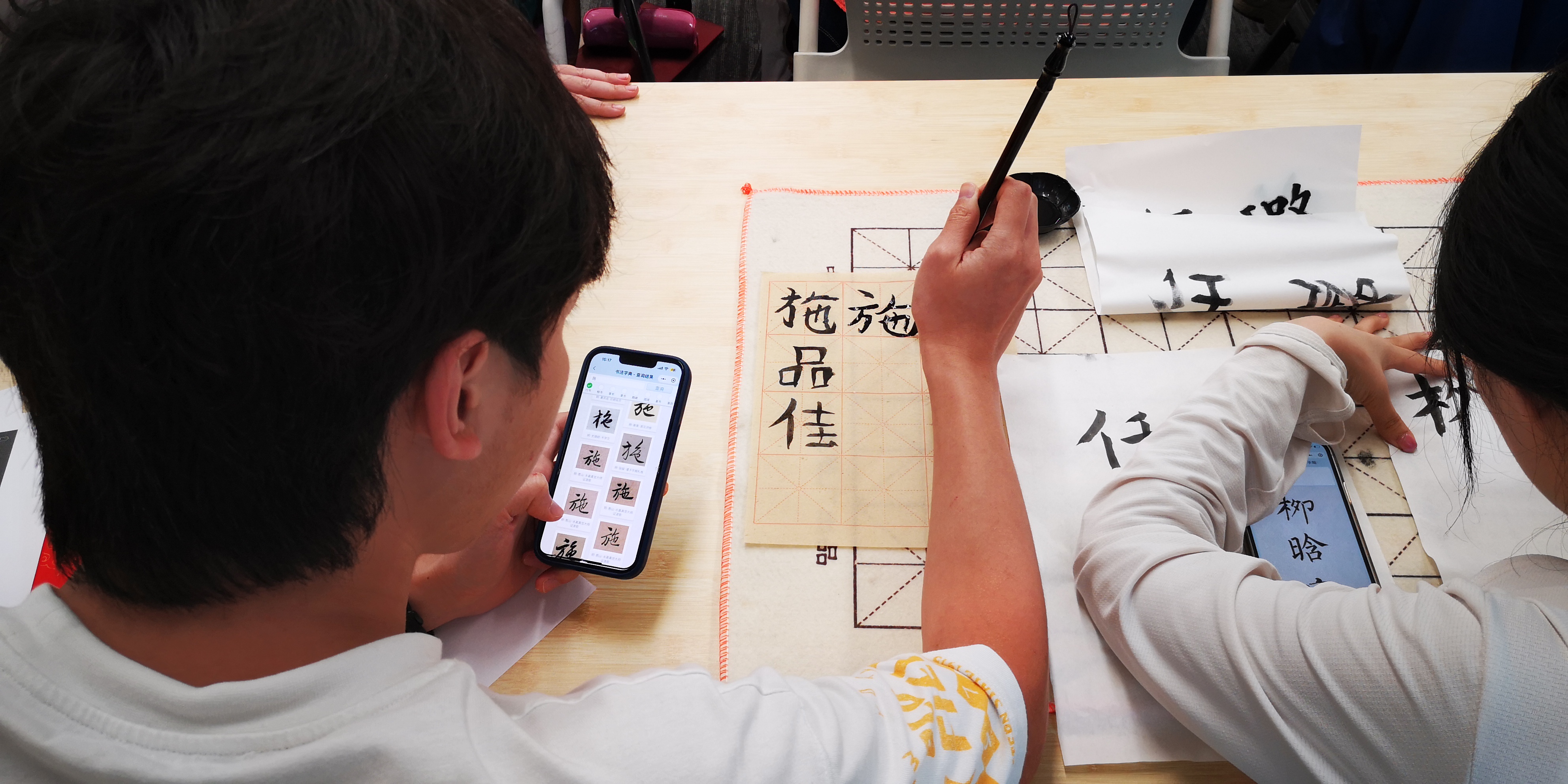
Students practicing Chinese calligraphy.
The highlight was interacting with high school students who visited our campus, many of whom were from the Yi ethnic minority group and were outside of Sichuan for the first time in their lives. I was able to resonate with these students even though we have very different cultural backgrounds. I, like them, had very little exposure to the college process and did not know that obtaining a higher education was possible. Getting to know these students left a lasting impression on me because they were all so friendly, curious, and eager to learn and create a better future for themselves.
In the future I hope to work in international relations where I hope I to apply my Chinese skills through conversations in the work field. I also hope to continue developing strong friendships with other Chinese individuals so that I can continue to learn the language and culture.
Proudest Moment:
I felt a great sense of achievement when I was able to communicate with a few Chinese nationals on the train back from a trip to Beijing after the immersion program had concluded. Being able to have a few conversations and make new friends on the train made me feel really proud of myself.
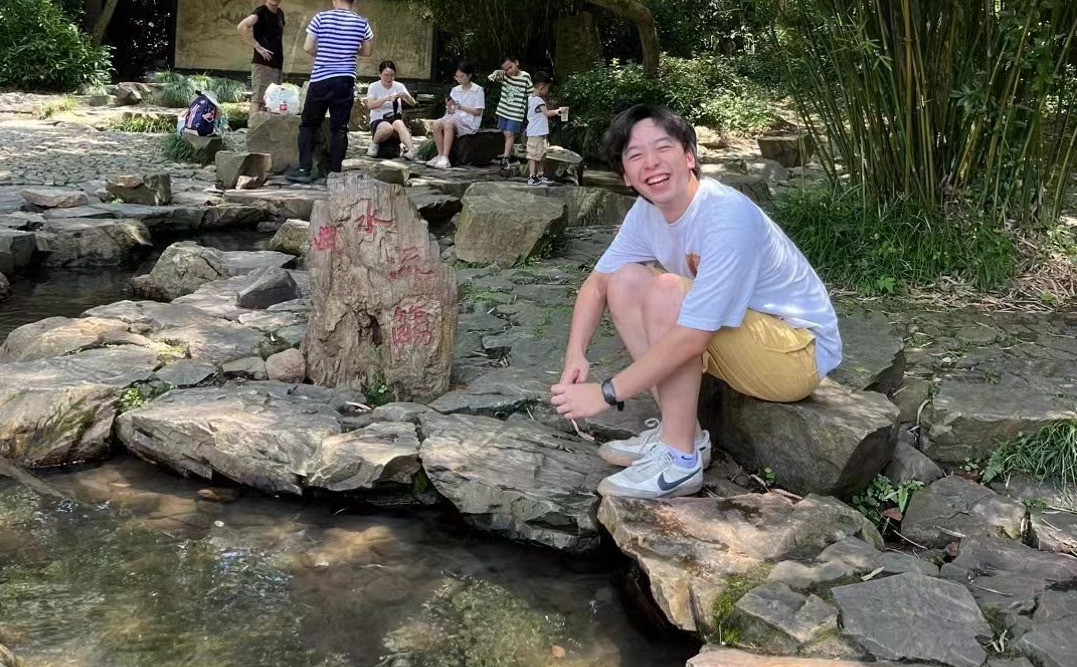
Pitchakorn Siripakorn ’25
Major: Global China Studies
Hometown: Nonthaburi,Thailand
When I was younger, I hated learning Chinese. But as I grew up, I became more engaged with and appreciative of the language and culture. My grandfather was from Shantou, Guangdong and my father would occasionally talk about my grandfather and tell me some Chinese idioms and proverbs. Learning Mandarin Chinese isn't just about mastering a linguistic skill, it's about honoring my ancestry and preserving a vital part of my family's history.
Advice for Students:
My advice would be to approach the program with an open mind and a willingness to step out of your comfort zones. Actively engage with the language, the culture, and your peers. Making mistakes is a natural part of learning, so you should embrace the process and not be afraid to ask for help from the teaching assistants or fellow participants.
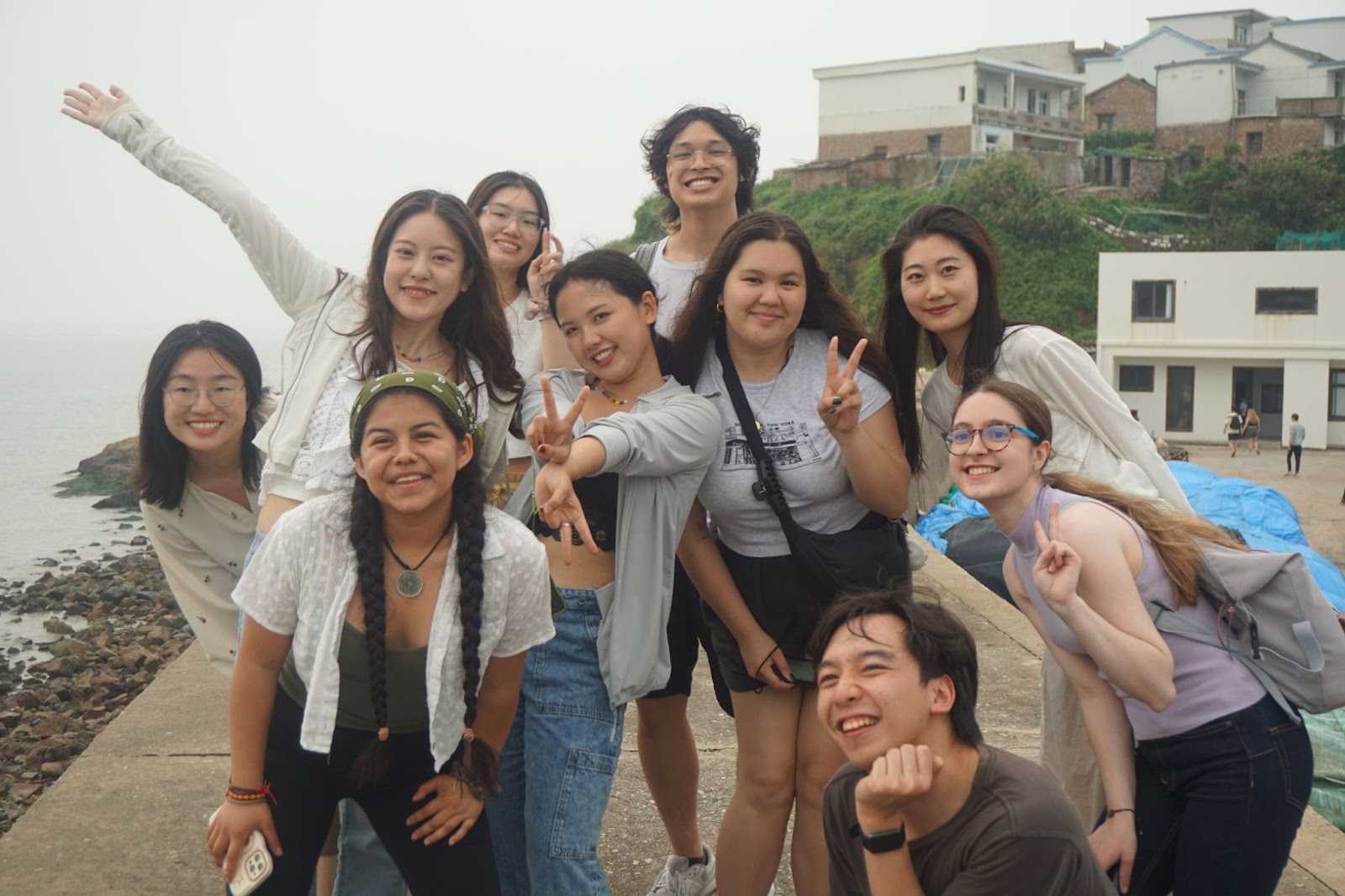
Students on a overnight visit to Shengsi Island in Zhejiang Province.
NYU Shanghai’s Summer Intensive Chinese Programs will continue in summer of 2024.

